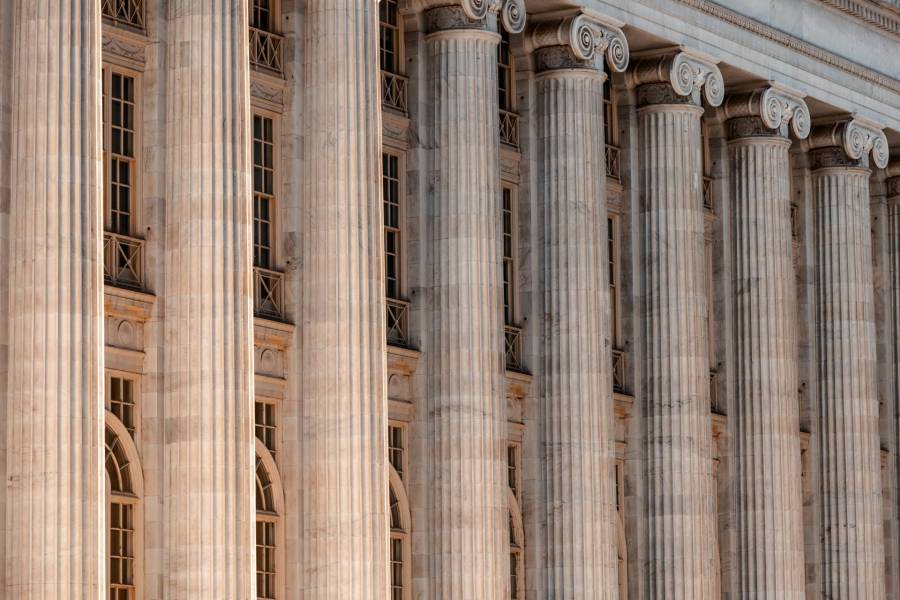The efforts of the Biden administration to combat misinformation and regulate content on social media platforms were dealt a significant blow when a federal judge in Louisiana issued a ruling restricting government officials from communicating or meeting with tech giants such as Facebook, YouTube, and Twitter. This ruling was a direct hit to the administration’s efforts to combat misinformation and regulate content on social media platforms.
Judge Terry A. Doughty of the United States District Court for the Western District of Louisiana ruled that it is against the law for federal agencies like the FBI and the Department of Health and Human Services to report content and accounts on social media platforms. The judge did, however, make exceptions for the reporting of content on social media that engaged in illegal activity or posed a threat to the nation’s security.
This decision came about as a result of a legal challenge that had been lodged by Republican attorneys general in the states of Louisiana and Missouri. The lawsuit made the allegation that government officials had conspired with social media platforms to suppress conservative voices and viewpoints under the guise of preventing the spread of false information. This allegation was made in the context of the lawsuit. The attorneys general argued that posts pertaining to a wide variety of subjects, such as the COVID pandemic and Hunter Biden’s laptop, were unfairly targeted for removal and that they should not have been deleted.
In their court filings, the attorneys general went as far as to assert that the actions in question represented “the most egregious violations of the First Amendment in the history of the United States of America.” In the injunction that was handed down by the judge, it was stated that the evidence that was presented by Louisiana and Missouri demonstrated a “massive effort” on the part of federal agencies, all the way down to the White House, to suppress speech based on the content of the speech. This evidence was acknowledged by the judge and was presented as part of the injunction.
The actions of government officials have been defended by stating that they intended to reduce the number of deaths caused by COVID by combating harmful misinformation and alerting social media companies to illegal activities such as human trafficking and terrorism. This justification has been provided in order to justify the government officials’ actions. They argued that social media platforms have a responsibility to take into account the effect that their platforms have on the people of the United States and to make their own decisions regarding the information that they present to users. This responsibility includes taking into account the effect that their platforms have on the people of the United States.
According to a representative from the White House, the Justice Department is currently reviewing the injunction that was handed down by the court in order to determine the various courses of action that it can take. Regarding the implications of this ruling for the government’s efforts to combat the spread of false information and to regulate social media platforms, there is still a lot of uncertainty.
It is important to note that the recent ruling that was issued by Judge Doughty prohibits government officials from contacting technology companies about content moderation. On the other hand, it is important to note that this ruling is not a final ruling on the matter. The injunction sheds light on the ongoing legal battle between conservative voices and the administration of former Vice President Joe Biden over the regulation of social media platforms. The injunction was initially brought to the public’s attention by the Washington Post.
Because of the injunction, it is now categorically against the law for government agencies like the FBI and the Department of Health and Human Services to report potentially malicious behavior on social media posts and accounts. On the other hand, it does make exceptions for situations involving illegal activity and potential dangers to the nation’s security.
The decision might have significant repercussions for social media platforms such as Facebook and Twitter, in addition to the businesses that are their parents. The parent company of Facebook and Instagram, Meta, has decided not to provide any comment regarding the judge’s decision. The response from Twitter, on the other hand, was an automated poop emoji, which indicated that the social media platform did not agree with or accept the ruling. It was impossible to get a comment from Google, which was one of the companies that was named in the lawsuit. The lawsuit was filed against a number of companies.
It is unknown how social media platforms will navigate the legal landscape as they continue to face pressure from both governmental entities and users who have varying opinions on how content moderation should be handled. This pressure is likely to come from both sides: the users and the government.
As a direct consequence of this decision, the discussion that has been going on for some time about how content should be moderated on social media platforms has been brought to the forefront. Although there is widespread consensus that harmful content, false information, and illegal activities need to be combatted, there is a wide range of opinions concerning how this should be accomplished and who should be responsible for it.
The administration of Vice President Joe Biden, much like the administrations that came before it, is of the opinion that social media platforms have a responsibility to take preventative measures to ensure the public’s health, safety, and security. This view is shared by the administration of former President Barack Obama. On the other hand, there are those who hold the opinion that efforts of this nature can violate individuals’ rights to free speech and that they unfairly target specific voices and points of view.
As the legal battle plays out and additional decisions are handed down by the courts, it is highly likely that the future of content moderation will continue to develop. Keeping a healthy balance between the need to combat harmful content and the protection of free speech and the maintenance of a diverse range of voices on social media platforms continues to be a difficult and controversial challenge. This challenge is made more difficult by the fact that there is a lot of controversy surrounding this issue.
First reported on USA Today


















